What Is My Face Shape? Experts Explain How to Determine Yours

Have you ever found yourself wondering, “What is my face shape?” Perhaps you’ve even spent a few minutes in front of the mirror evaluating your forehead, chin, and cheekbones to determine what “shape” suits you best. Trust us, you’re not alone. But if you weren’t able to come to a conclusion, our experts have you covered. Read on to find out how to determine your face shape, and how it can help with a number of beauty decisions.
RELATED: 10 French Skincare Secrets That Will Make You Look Years Younger, Experts Say.
Why is it important to know your face shape?
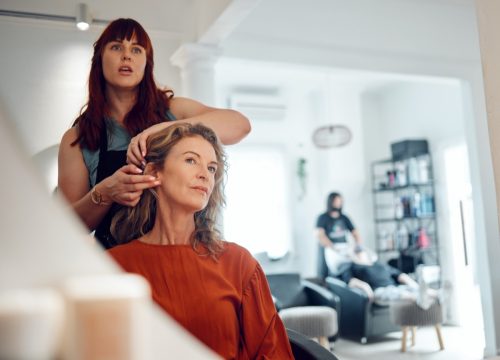
While you might just be curious about your face shape, determining it can also have a few benefits.
“It is so important to know your face shape because certain facial features are more amplified and highlighted when, for example, grooming eyebrows or deciding a hairstyle (to have bangs or not),” says Lesley Rabach, MD, double board-certified facial plastic surgeon. “Also, we notice certain hairstyles and jewelry or even sunglasses look better on some features than others.”
Beyond that, knowing your face shape can also help you highlight the feature on your face you want to play up, versus those you don’t want to call attention to, notes William Whatley, celebrity hairstylist and creative education director for Scruples Haircare.
“If you want to accent features or diminish features, knowing your face shape will help determine what hairstyle [suits] you,” he explains.
RELATED: Heatless Hair: 8 Best Gentle Techniques for Curling and Straightening Your Strands.
How many face shapes are there?
Believe it or not, there are several different shapes beyond just your typical round and heart shapes (although, yes, those are two of the bunch). According to experts, you may have one of seven basic face shapes—or a mix of a few. Our experts have broken it down to help you figure out where you fit.
The 7 Face Shapes
Oval
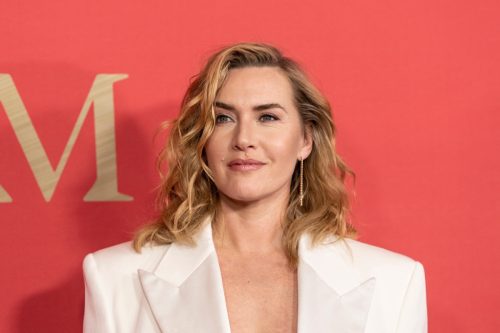
According to William Whatley, celebrity hairstylist and creative education director for Scruples Haircare, the oval shape is the most “balanced” when it comes to applying a hairstyle.
An oval-shaped face is longer than it is wide and will be a bit rounded, says Gretchen Friese, Bosley MD trichologist.
Rectangle/Oblong
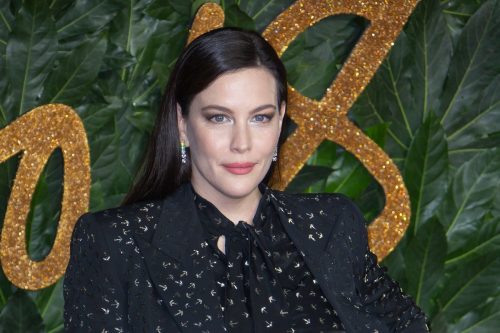
Next up is a rectangle face, where the eyes are the focus, Whatley says. People with this face shape have a forehead and lower face that are the same shape, with longer sides. Rectangle faces have sharper edges, but if the chin and forehead are rounded, it’s sometimes called an oblong face shape.
Round

A round face is softer around the edges, including around the forehead, chin line, and hairline, Whatley explains. The cheeks appear more prominent, Friese says, and the forehead and cheeks are the same width.
RELATED: What Is “Runner’s Face” and How Do You Avoid It?
Square
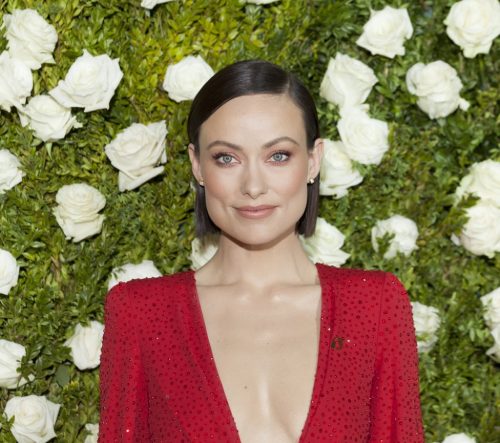
A square shaped face has harder angles, Whatley says. According to Friese, a square face is as wide as it is long, and more angular than a round face.
Heart
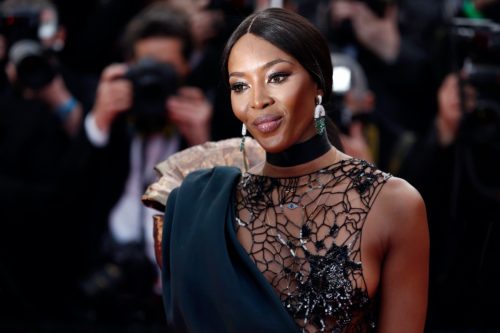
Another well-known face shape is the heart-shaped face. According to Whatley, people with this shape have a wider face, a longer forehead, and a pointier chin.
Diamond
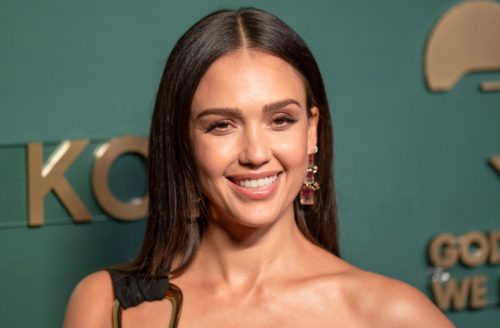
Whatley shares that a diamond face is defined by higher checkpoints and a more pointed chin. According to Friese, the widest part of a diamond-shaped face is at the cheekbones, while the jawline and forehead are narrower. The jawline and forehead will typically be the same width.
Pear/Inverted Triangle
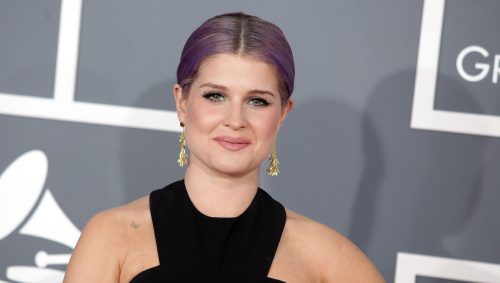
A pear face is often used interchangeably with the inverted triangle, as both have the same general structure. The jawline is the widest part of the face, with the cheekbones slightly narrower than the jawline, and then the forehead narrower than the cheekbones.
However, inverted triangle- and pear-shaped faces differ in the angles. Pear faces tend to be more rounded at the edges and fuller overall.
RELATED: What Is “Ozempic Face” and How Do You Treat It?
How can I find my face shape?
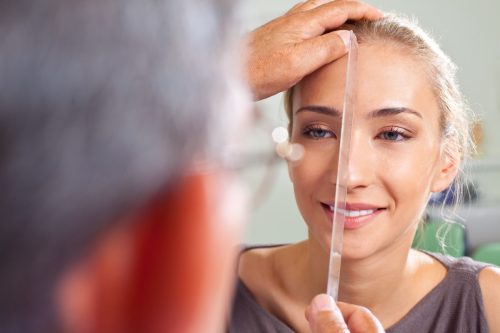
Do your measurements yourself.
To find your face shape, Rabach says you need to measure a few dimensions, including your total length, forehead width, jawline width, and cheekbone width.
“These four measurements help determine the face shape you are most like,” Rabach explains.
According to MasterClass, identifying the widest part of your face is the first step. You likely have a round or heart shape if your cheekbones are the widest. A heart-shaped face will also have a pointy chin.
If your face is longer than it is wide, it’s probably oval. If the length of your face is twice as long as it is wide, you probably have a rectangular or oblong face shape. However, if your face is equally proportioned all around, and you have a jawline with sharp angles, it’s likely you have a square or diamond face shape.
Consult a professional.
If you look at your measurements and still can’t determine what face shape you have, seek out professional advice.
“The easiest way for someone to find out what their face shape is to have a consultation with a talented hairdresser,” Whatley notes. “They will go through what your face shape is, and will go through and design a haircut perfect for you.”
RELATED: 8 Ways Your Makeup Is Making You Look Older, Beauty Experts Warn.
FAQ
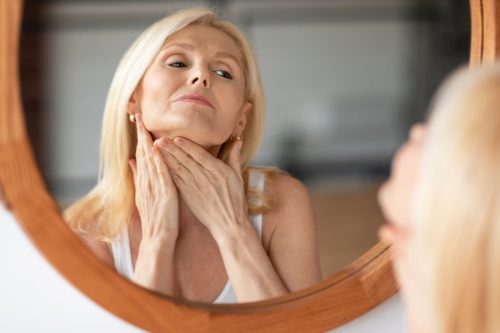
Can your face shape change over time?
While your bone structure stays the same, the shape of your face can change with age when you lose a bit of roundness, Friese says.
“With aging, we lose fat cell volume as well as collagen and elastin, and therefore, our features descend, thereby changing the shape of our face,” Rabach adds. “As we age, our faces generally become longer and more drawn, so a more round face will become oval, a more square face will become rectangular.”
Does your sleeping position affect your face shape?
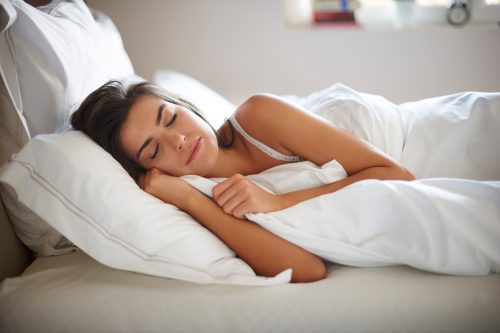
Experts differ on whether sleeping position affects the shape of one’s face. Whatley doesn’t think it’s a factor, but according to Rabach, there are hypotheses about side sleepers.
“There is some thought that sleeping exclusively on one side will cause collagen and elastin to be lost more on that side, thereby causing more volume loss on that side. This happens very slowly night after night, year after year, and in certain people, we can see a difference on that side,” she shares. “This, of course, is compounded by the fact that the two sides of the face are never exactly symmetric, which is what makes each of us so beautiful to begin with.”
However, this shouldn’t “significantly affect the overall face shape,” Rabach clarifies.
What’s the difference between a square and a rectangle face?
While square and rectangle faces are similar, there is a key differentiator between the two.
“The main difference between a square and rectangular face is the overall length of the face,” Rabach explains. “Both shapes show a strong jawline but the difference is that the overall length of the rectangular face is longer than the square.”
RELATED: These Easy Face Exercises Could Make You Look Three Years Younger.
Wrapping Up
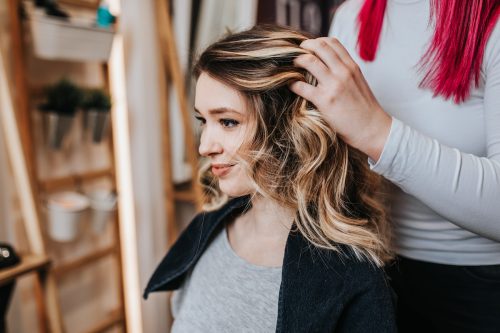
In general, knowing your face shape is crucial when making decisions about different parts of your appearance, from glasses to hats to makeup to hairstyles.
If you’re in the mood to try something new with your hair, you can use your shape as a jumping-off point. If you have a round face, for example, you might want to try a side-swept bob the next time you visit the hair salon. Have a heart-shaped face? Take Whatley’s recommendations and ask for longer bangs and fuller hair around the chin.